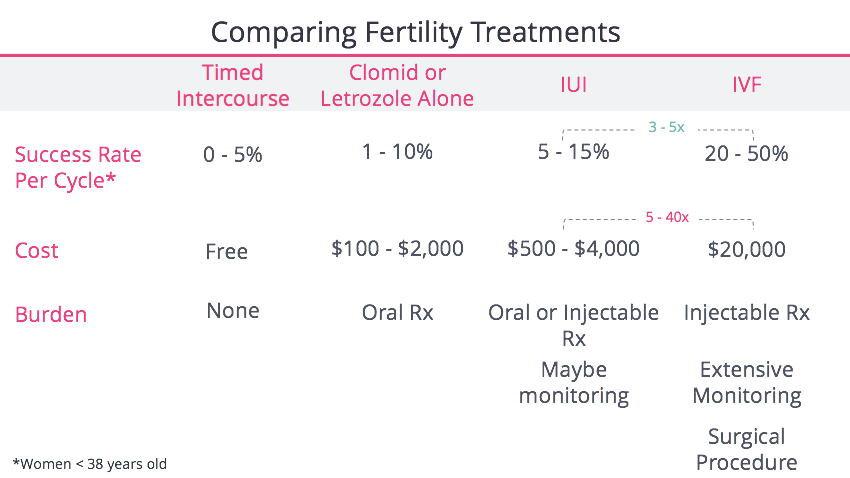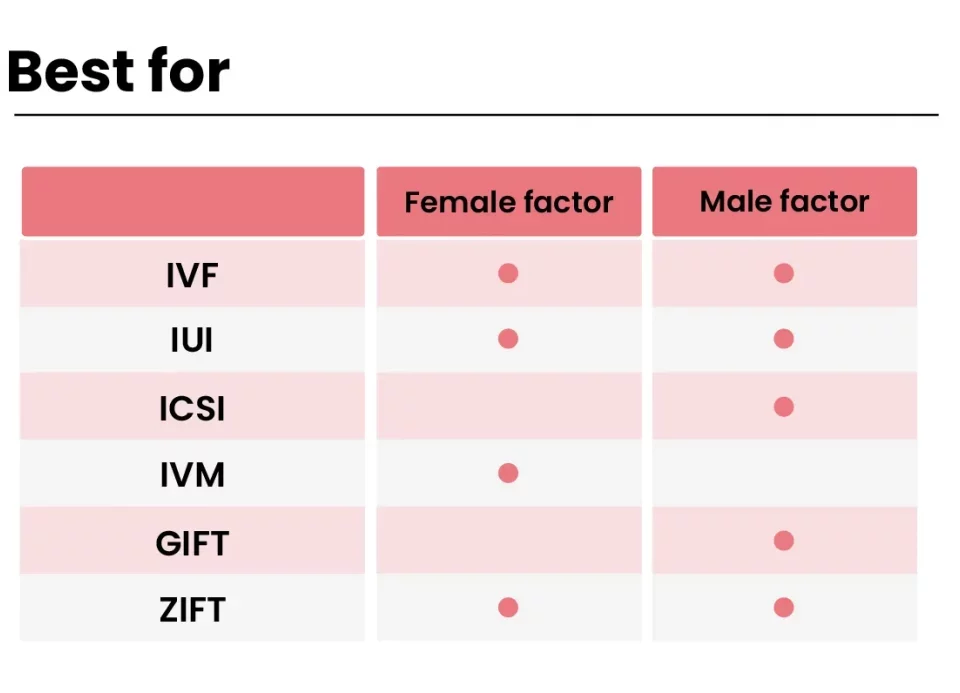
Does Medical Insurance Cover IVF? Your Ultimate Guide to Understanding Coverage
April 15, 2025
What Is the IVF Act?
April 15, 2025What Insurance Covers IVF in Florida: Your Ultimate Guide to Fertility Coverage

What Insurance Covers IVF in Florida: Your Ultimate Guide to Fertility Coverage
Navigating the world of fertility treatments can feel like wandering through a maze—especially when it comes to figuring out what insurance will actually cover. If you’re in Florida and considering in vitro fertilization (IVF), you’re not alone in wondering how to make this dream a reality without breaking the bank. IVF is a life-changing option for many, but its cost can be daunting. The good news? Some insurance plans might help lighten the load—if you know where to look and what to ask.
In this guide, we’ll dive deep into what insurance covers IVF in Florida. We’ll explore why coverage varies, how to check your plan, and what to do if you’re left paying out of pocket. Plus, we’ll uncover fresh insights—like how recent trends in employer benefits and new research could affect your options—while keeping things simple and relatable. Whether you’re just starting your fertility journey or you’ve been at it for a while, this article is here to help you take the next step with confidence.
Why IVF Coverage Matters in Florida
IVF isn’t cheap. A single cycle in Florida can cost anywhere from $10,000 to $20,000, depending on the clinic, medications, and extra procedures like genetic testing. For many families, that’s a huge hurdle—especially since it often takes more than one try to get pregnant. Insurance coverage can make all the difference, turning a distant hope into something within reach.
Florida, though, doesn’t make it easy. Unlike some states that require insurance companies to cover fertility treatments, Florida leaves it up to individual plans and employers. That means your coverage depends on luck, your job, and how well you can advocate for yourself. Nationally, only about 1 in 4 employers offer IVF benefits, according to a 2023 survey by the Society for Human Resource Management. In Florida, where tourism and small businesses dominate, that number might be even lower—but it’s growing as more companies see the value in supporting family-building.
So, why should you care? Because understanding your insurance options could save you thousands and spare you the stress of unexpected bills. Let’s break it down.
Does Florida Law Require IVF Coverage?
Here’s the short answer: No, Florida doesn’t mandate insurance companies to cover IVF. Some states—like Illinois or New Jersey—have laws forcing insurers to pay for fertility treatments, including IVF, if they cover pregnancy-related care. Florida isn’t one of them. That leaves you at the mercy of your insurance provider and your employer’s choices.
This lack of a state mandate doesn’t mean you’re out of luck, though. Some insurance plans in Florida still offer IVF coverage voluntarily—especially if you work for a big company or a national chain. Think places like Disney, Publix, or tech firms that want to attract top talent with generous benefits. Smaller employers, on the other hand, might skip it to keep costs down.
What does this mean for you? You’ll need to dig into your specific plan to see what’s covered. Don’t assume anything—policies vary wildly, even within the same insurance company. One person with Blue Cross Blue Shield might get full IVF coverage, while another gets nothing, all because of their employer’s decisions.
Quick Check: Is Your Plan Affected by State Law?
- ✔️ Large employer (50+ employees)? Check your benefits package—federal laws don’t apply, but your company might offer IVF coverage.
- ❌ Small employer or self-employed? You’re less likely to have fertility benefits unless you picked a premium plan.
- ✔️ Government worker? Some state or federal plans include limited fertility coverage—ask HR!
How to Find Out If Your Insurance Covers IVF
Figuring out your coverage doesn’t have to be a headache. It just takes a little detective work. Here’s how to get started:
Step 1: Call Your Insurance Provider
Grab your insurance card and dial the number on the back. Ask these key questions:
- Does my plan cover infertility treatments like IVF?
- Are there limits—like a dollar cap or a set number of cycles?
- What about medications, testing, or extra procedures (like embryo freezing)?
- Do I need a referral or pre-approval?
Pro tip: Record the date, time, and name of the person you speak with. Insurance companies sometimes give conflicting answers, and notes can save you later.
Step 2: Talk to Your Employer
If your insurance comes through your job, HR is your next stop. Big companies might offer IVF coverage as a perk, even if it’s not required. Ask:
- Does our plan include fertility benefits?
- Can I switch to a plan with better coverage during open enrollment?
Fun fact: A 2024 Mercer report found that 42% of U.S. employers with 500+ employees now offer some IVF coverage—up from 36% in 2022. Florida’s numbers might lag a bit, but the trend is clear: family-friendly benefits are on the rise.
Step 3: Read the Fine Print
Your insurance policy—buried in that stack of papers or online portal—has the details. Look for sections on “infertility,” “assisted reproductive technology,” or “IVF.” Watch out for exclusions, like “no coverage for elective procedures,” which some insurers use to dodge IVF costs.
Real-Life Example
Take Sarah, a 32-year-old teacher from Orlando. She assumed her school district’s insurance wouldn’t cover IVF—Florida’s public sector isn’t known for lavish benefits. But after a quick call, she learned her plan covered diagnostic tests and some medications, saving her $2,000 upfront. It wasn’t full IVF coverage, but it was a start.
Which Insurance Plans Cover IVF in Florida?
No two plans are alike, but here’s a rundown of what you might find from major insurers in Florida. Keep in mind: Coverage depends on your specific policy, not just the company.
Blue Cross Blue Shield of Florida (Florida Blue)
Florida Blue is a big player here. Some plans cover IVF, especially if you’re with a large employer or a group plan. Others stop at diagnostics—like blood tests or ultrasounds—or basic treatments like intrauterine insemination (IUI). A 2022 NPR story highlighted a Florida couple who thought their Blue Cross plan covered IVF, only to find out the surgery center was out-of-network, costing them $15,000. Lesson? Double-check every detail.
Aetna
Aetna often covers IVF if your employer opts in. They might limit it to 2-3 cycles or cap the dollar amount—say, $15,000 lifetime. Medications might be separate, so ask about drugs like Clomid or Gonal-F.
Cigna
Cigna’s coverage varies by employer size. Big national companies (think Walmart or Amazon) might include IVF, while local firms might not. A Cigna rep told one Florida patient in 2024 that their plan covered 50% of IVF costs after a $5,000 deductible—better than nothing, but still a chunk of change.
UnitedHealthcare
UnitedHealthcare is hit-or-miss. Some plans offer full IVF cycles, others just testing. A 2023 study in Fertility and Sterility found that UnitedHealthcare plans with IVF benefits boosted usage by 20% in non-mandated states like Florida—proof that coverage matters.
Medicaid
Florida Medicaid doesn’t cover IVF. It might pay for diagnosing infertility (like hormone tests), but treatments are off the table. If you’re on Medicaid, you’ll need to explore other options—we’ll get to those later.
Interactive Quiz: Does Your Plan Stack Up?
Answer these quick questions to guess your odds:
- Do you work for a company with 100+ employees? (Yes = +1 point)
- Does your plan cover maternity care? (Yes = +1 point)
- Have you heard coworkers mention fertility benefits? (Yes = +1 point)
- 0-1 points: Slim chance of IVF coverage—start planning alternatives.
- 2-3 points: You might have partial or full coverage—dig deeper!
What IVF Costs Does Insurance Typically Cover?
Even if your plan includes IVF, it’s rarely a blank check. Here’s what’s usually in play—and what’s not.
Covered Costs
- Diagnostic Tests: Blood work, ultrasounds, or semen analysis—often covered to figure out why you’re struggling.
- Medications: Fertility drugs like follicle-stimulating hormone (FSH) might be partially covered, though copays can add up.
- IVF Cycles: Some plans cover egg retrieval, fertilization, and embryo transfer—up to a limit.
- Monitoring: Appointments during the cycle (ultrasounds, blood tests) are often included.
Not Covered (Usually)
- Extra Procedures: Think intracytoplasmic sperm injection (ICSI) or preimplantation genetic testing (PGT)—these can tack on $1,500-$5,000 per cycle.
- Embryo Freezing: Storing embryos for later? That’s often out-of-pocket, around $500-$1,000 per year.
- Donor Eggs or Sperm: Using a donor usually isn’t covered—expect $10,000+ extra.
Table: Sample IVF Cost Breakdown With and Without Insurance
| Service | Cost Without Insurance | With Partial Coverage |
|---|---|---|
| Egg Retrieval | $6,000 – $8,000 | $2,000 – $4,000 |
| Medications | $3,000 – $5,000 | $1,000 – $2,500 |
| Embryo Transfer | $3,000 – $4,000 | $1,000 – $2,000 |
| Genetic Testing (PGT) | $3,000 – $5,000 | Not Covered |
| Total per Cycle | $15,000 – $22,000 | $4,000 – $8,500 |
Note: Costs vary by clinic and location—Orlando might be pricier than Tampa.
What If Your Insurance Doesn’t Cover IVF?
No coverage? Don’t lose hope. Floridians have options to make IVF more affordable—some you won’t find in every guide.
Option 1: Switch Jobs or Plans
Big employers—like tech firms, hospitals, or chains like Starbucks—often offer IVF benefits to attract workers. A 2024 X trend showed Florida job-seekers hunting for “fertility-friendly employers” in cities like Miami and Jacksonville. It’s a bold move, but if IVF’s your priority, it might be worth it.
Option 2: Fertility Clinics’ Financial Programs
Many Florida clinics—like the Center for Reproductive Medicine in Orlando or IVFMD in Miami—partner with lenders like Future Family or Lending Club. They offer loans with rates as low as 3.99% for good credit. Some even have “multi-cycle packages” that discount extra tries—say, $25,000 for 3 cycles instead of $15,000 each.
Option 3: Grants and Nonprofits
Organizations like Baby Quest Foundation or Footprints of Angels give grants—sometimes $5,000-$15,000—to cover IVF. Apply early; spots fill fast. In 2023, Baby Quest awarded 20 grants nationwide, with 3 going to Florida families.
Option 4: Clinical Trials
Some clinics, like RMA Florida, run studies offering free or discounted IVF if you qualify. A 2024 trial in Orlando cut costs by 50% for participants testing new drug protocols. Search ClinicalTrials.gov for “IVF Florida” to find open studies.
Mini Case Study: Maria’s Story
Maria, a 35-year-old nurse from Tampa, had no IVF coverage through her small hospital’s plan. She applied for a Baby Quest grant ($7,000), took a $10,000 loan through her clinic, and negotiated a payment plan for the rest. Her first cycle worked—she’s now mom to a 6-month-old boy. Total out-of-pocket? $12,000 instead of $18,000.
New Angles: What’s Changing in Florida IVF Coverage?
The top Google results often miss what’s new—and that’s where we can shine. Here are three fresh topics shaping IVF insurance in Florida that you won’t find everywhere.
1. Employer Benefits Are Evolving
Post-2020, companies nationwide are beefing up family benefits to keep workers happy. In Florida, firms like Baptist Health and University of Miami added IVF coverage in 2023-2024, per employee chatter on X. Why? It’s a retention tool—97% of employers in a 2024 Maven Clinic study said fertility benefits didn’t spike costs but did boost loyalty. If your company’s lagging, pitch it to HR—data backs you up.
2. Fertility Preservation Is Gaining Traction
Freezing eggs or embryos isn’t IVF, but it’s related—and coverage is growing. A 2023 Journal of Assisted Reproduction study found 15% of U.S. plans now cover preservation for medical reasons (like cancer treatment), up from 5% in 2018. Florida’s no exception—some Aetna and Cigna plans here include it. Ask your insurer: “Does my plan cover fertility preservation?” It could save you later.
3. Out-of-State Clinics as a Hack
Here’s a curveball: Some Floridians travel to states like Georgia or North Carolina, where clinics might offer lower rates or package deals. A 2024 X thread showed a Jacksonville couple driving to Atlanta, saving $4,000 per cycle. Pair that with a job offering remote work, and you’ve got a sneaky way to stretch your dollars.
Practical Tips to Maximize Your Coverage
Ready to take action? These strategies can help you get the most out of your insurance—or work around it.
If You Have Coverage
- Get Pre-Authorization: Some plans require approval before IVF—don’t skip this, or you’ll pay full price.
- Use In-Network Providers: Out-of-network clinics (like that fancy surgery center) can double your costs—stick to the list.
- Appeal Denials: Denied coverage? Fight back with a letter from your doctor. A 2022 Kaiser Health News report found 1 in 3 appeals succeeded.
If You Don’t Have Coverage
- Negotiate with Clinics: Ask about cash discounts—some drop 10-20% if you pay upfront.
- Crowdfund: Friends and family chipped in $8,000 for a Miami couple’s IVF in 2023 via GoFundMe—don’t be shy to ask.
- Tax Breaks: The IRS lets you deduct medical expenses over 7.5% of your income—IVF qualifies. Save those receipts!
Checklist: Your IVF Action Plan
- ✔️ Call your insurer and HR this week.
- ✔️ Research clinics with payment plans or trials.
- ✔️ Apply for a grant by next month’s deadline.
- ❌ Don’t sign anything until you know all costs.
The Emotional Side: Coping With Costs
Let’s be real—IVF isn’t just about money. It’s emotional. A 2023 study in Human Reproduction found that financial stress doubles anxiety during fertility treatments. If insurance won’t cover you, it’s okay to feel overwhelmed. Talk to a counselor (some clinics offer free sessions), join a support group, or vent online—Florida’s fertility community on X is active and welcoming.
One mom-to-be shared on X in March 2025: “No coverage, but we made it work with savings and a loan. Seeing that heartbeat? Worth every penny.” You’re not alone in this.
What’s Next for IVF Coverage in Florida?
Looking ahead, change might be coming. Advocacy groups like RESOLVE are pushing for state mandates—19 states have them, so why not Florida? A 2024 bill (HB 1609) in Virginia sparked similar talks here, though nothing’s official yet. Meanwhile, employers are stepping up, and clinics are getting creative with financing.
For now, your best bet is to know your plan, explore every option, and lean on your community. IVF’s a big step—but with the right info, you can make it happen.
Poll: What’s Your Biggest IVF Worry?
- A) Cost
- B) Finding coverage
- C) Success rates
- D) Emotional toll
Drop your answer in the comments—I’d love to hear!

